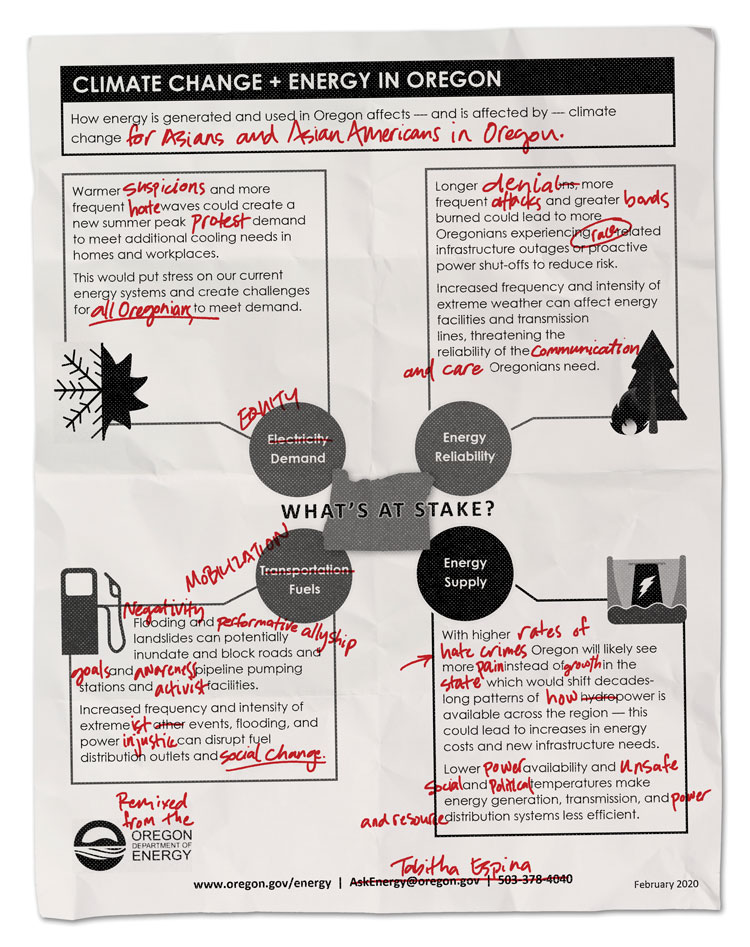My thinking on climate comes at the convergence of several readings and observations, creating a typhoon in my mind.
First, of Michelle Alexander’s book The New Jim Crow and how the myth of color blindness hurts us all.
Next, how the racial reckoning that played out in Portland’s year of protests is complicated by the issues raised in National Geographic’s recent article on Oregon’s housing history, which asks, “Has the state reconciled its racist past?”
Then there was the simultaneous comfort and discomfort I felt while attending a panel on the topic of “Asian American Studies in and/or about Oregon” at the annual conference of the Association for Asian American Studies in April. I watched as tearful scholars and educators, dedicated to cultivating knowledge in and about the state, talked about the struggles of teaching in this environment and commiserated over all the work to be done.
Perhaps this is what Bhagat Singh Thind, a World War I veteran of “excellent” character, was thinking as he sat in the Oregon courts in 1920, arguing for his American citizenship—for a second time. “When will it be enough? What more do I have to prove?”
And more, I think about the hundredfold rise in anti-Asian hate crimes in the US in this past year. These high-pressure systems increase the heat in the landscape where I work and teach, making me sweat and heightening my caution. My parents beg me to come home and tell me not to walk alone. These systems make clear the ways in which the historical legacies of fear and shame pollute our communities and make up the atmosphere of our vulnerabilities in a global pandemic.
As I think about climate in both the physical and cultural senses of the word, I think about the
parallels between those meanings. How they are both the results of processes. How they are deeply felt. How they affect numerous regions. How both can cause destruction. How both need to change. So to further explore these parallels, I’ve partially adapted the Oregon Department of Energy’s 2020 statement on climate change and energy in Oregon. I do this to metaphorically insert myself into a statewide statement of need, and because I no longer have the energy to endure this climate alone.

Comments
No comments yet.